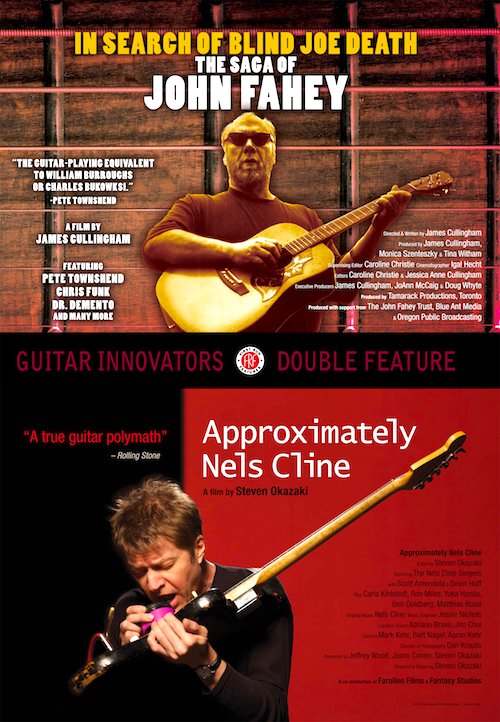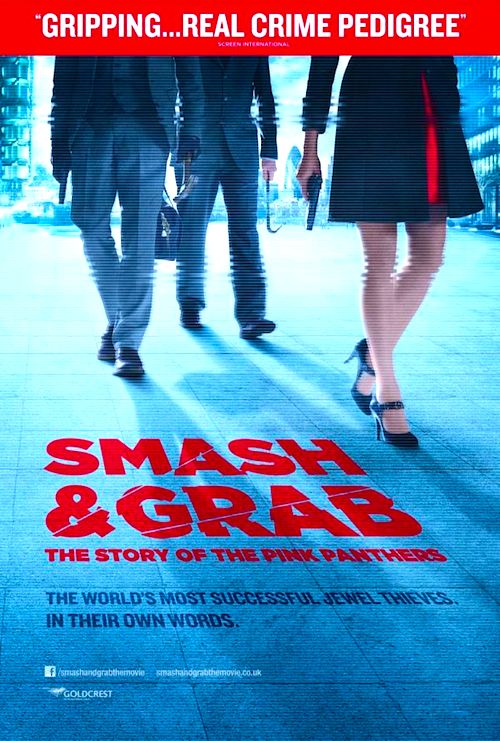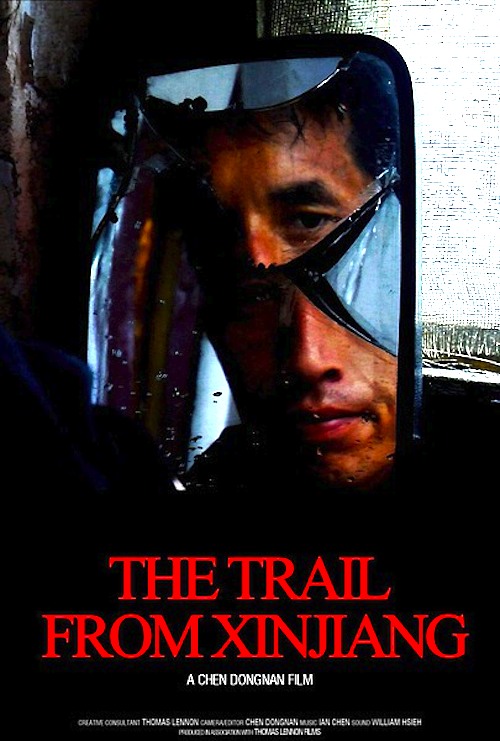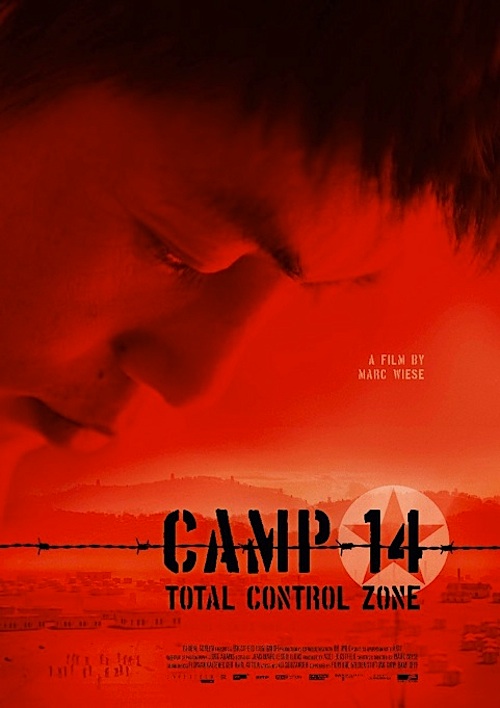By Joe Bendel. John Fahey knew the blues. He eventually published his academic thesis on Skip James and “re-discovered” real deal bluesman Bukka White. He could also play the guitar, combining a legit blues attack with an avant-garde harmonic sensibility. Never a commercial sensation, Fahey developed a cult following. The idiosyncratic guitar master consistently defied arbitrary genre distinctions, as does Nels Cline (probably best known for his work with Wilco). Despite their stylistic differences, both musicians make an apt pairing in First Run Features’ Guitar Innovators, a theatrical double feature of two mid-length documentaries opening this Friday in New York.
The late Fahey’s chaotic life offers plenty of grist for James Cullingham’s In Search of Blind Joe Death: the Story of John Fahey. The longer of the two films, Death surveys the guitarist’s life and his prolific but under-distributed musical output. The artist who playfully adopted the “Blind Joe Death” moniker had nearly as many distinctive creative periods as Picasso, including a sojourn through the world of old school New Orleans jazz. Apparently, he had a rather traumatic childhood, which Cullingham addresses briefly and diplomatically (rather raising more questions than he answers). However, he fully embraces Fahey’s image as an artistic eccentric, including plenty of viewer-friendly anecdotes as part of his portrait.
 Including short animated interludes and talking head segments with The Who’s Pete Towsend and Fonotone Records’ Joe Bussard, Death is strong on biography, but is oddly stingy when it comes to the actual music. It will convince viewers that Fahey was important and influential, but might not move a lot of CDs and downloads for his heirs. Still, it represents a rare cinematic fix for blues fans. (LFM GRADE: B+)
Including short animated interludes and talking head segments with The Who’s Pete Towsend and Fonotone Records’ Joe Bussard, Death is strong on biography, but is oddly stingy when it comes to the actual music. It will convince viewers that Fahey was important and influential, but might not move a lot of CDs and downloads for his heirs. Still, it represents a rare cinematic fix for blues fans. (LFM GRADE: B+)
Steven Okazaki’s Approximately Nels Cline personally introduces viewers to the American experimental jazz and rock guitarist, but it is not intended as an exhaustive study. Instead, it captures Cline’s creative process in the studio with several simpatico colleagues. The free improvisation and electronic instrumentation of Cline’s group sounds worlds removed from Fahey blues-roots music, but their choice of time-honored folk songs like “Black is the Color” nicely parallels Fahey’s modernist approach to traditional fare.
Cline also recruits an enormously talented ensemble, including the unusually versatile jazz trumpeter Ron Miles, who brings an In a Silent Way kind of vibe to the session. Violinist-vocalist Carla Kihlstedt also sounds quite haunting on their dramatic rendition of “Color.” We also hear the more abstract side of Cline when playing with keyboardist-programmer Yuka Honda (who also happens to be his wife). At half an hour, it should not overwhelm aesthetically conventional ears, especially given the warm, handsome look of the performance footage shot by cinematographer Dan Krauss at the storied Fantasy Studios.
Death documents a fascinating life, while Approximately records some striking music in the making, but both films speak to each other in intriguing ways. Shrewdly packaged by First Run, both documentaries are highly recommended separately or together as the Guitar Innovators double bill, which opened last Friday (8/16) in New York at the Cinema Village. (LFM GRADE: A-)
LFM DOUBLE-BILL GRADE: B+
Posted on August 19th, 2013 at 8:14pm.




